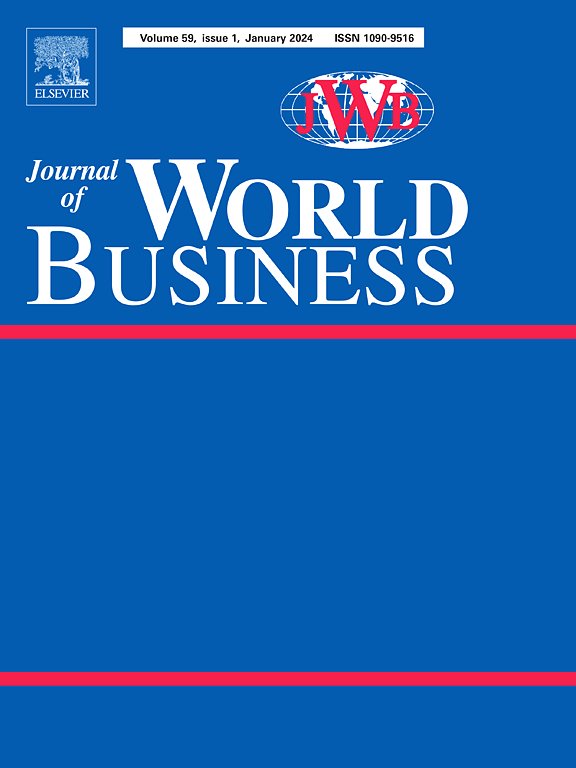高潜质项目的前因后果:企业文化环境的作用
IF 8.8
1区 管理学
Q1 BUSINESS
引用次数: 0
摘要
借鉴新制度理论和权变理论,我们认为,当高潜质项目在文化环境中被接受、合法并符合文化环境时,企业更有可能使用该项目并从中受益。通过对来自 23 个国家的 1,808 家企业进行抽样调查,我们的结果证明,高潜质项目的使用存在跨文化差异,但其模式与新制度理论的预测基本不一致。我们发现,高潜质项目的使用与企业绩效之间存在正相关关系,但这种关系并不取决于企业的文化环境。本文章由计算机程序翻译,如有差异,请以英文原文为准。
Antecedents and performance consequences of high-potential programs: The role of firms’ cultural environment
Drawing on neo-institutional and contingency theory, we argue that firms are more likely to use and benefit from a high-potential program when it is accepted and legitimate in and fits with the cultural environment. Drawing on a sample of 1,808 firms from 23 countries, our results provide evidence that the use of high-potential programs is subject to cross-cultural variations, but the pattern is largely inconsistent with predictions derived from neo-institutional theory. We find a positive relationship between the use of high-potential programs and firm performance, but this relationship is not contingent on a firm's cultural environment.
求助全文
通过发布文献求助,成功后即可免费获取论文全文。
去求助
来源期刊

Journal of World Business
BUSINESS-
CiteScore
16.50
自引率
11.20%
发文量
73
期刊介绍:
The Journal of World Business holds a distinguished position as a leading publication within the realm of International Business. Rooted in a legacy dating back to 1965, when it was established as the Columbia Journal of World Business, JWB is committed to disseminating cutting-edge research that reflects significant advancements in the field. The journal actively seeks submissions that propel new theoretical frameworks and innovative perspectives on International Business phenomena. Aligned with its domain statement, submissions are expected to possess a clear multinational, cross-border, or international comparative focus, while remaining pertinent to the study of management and organizations. JWB particularly encourages submissions that challenge established theories or assumptions, presenting pioneering or counterintuitive findings. With an inclusive approach, the journal welcomes contributions from diverse conceptual and theoretical traditions, encompassing allied social sciences and behavioral sciences. Submissions should either develop new theories or rigorously test existing ones, employing a variety of qualitative, quantitative, or other methodological approaches. While JWB primarily caters to scholars and researchers, it values contributions that explore implications for Multinational Enterprises and their management, as well as ramifications for public policy and the broader societal role of business.
 求助内容:
求助内容: 应助结果提醒方式:
应助结果提醒方式:


